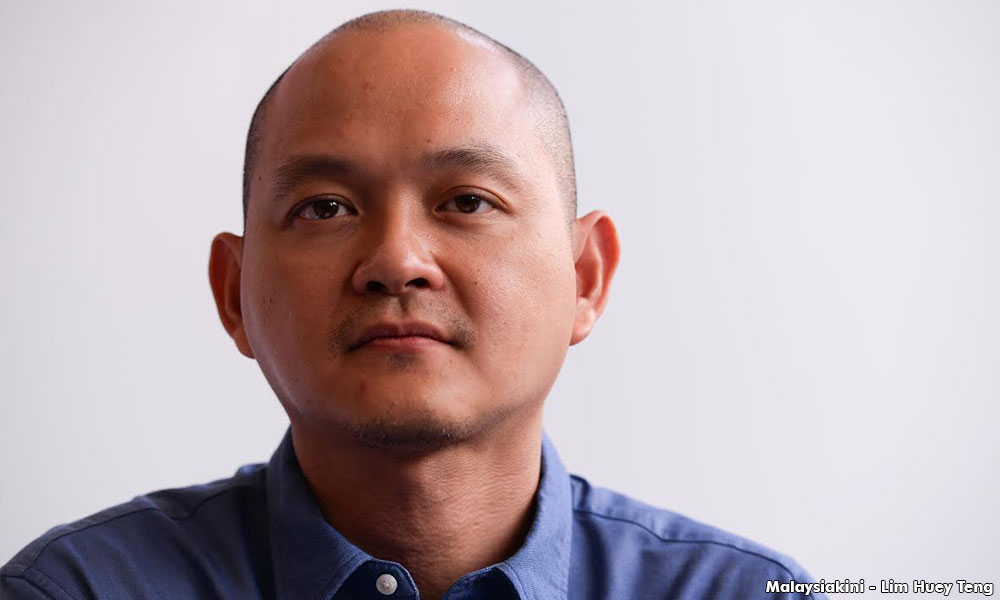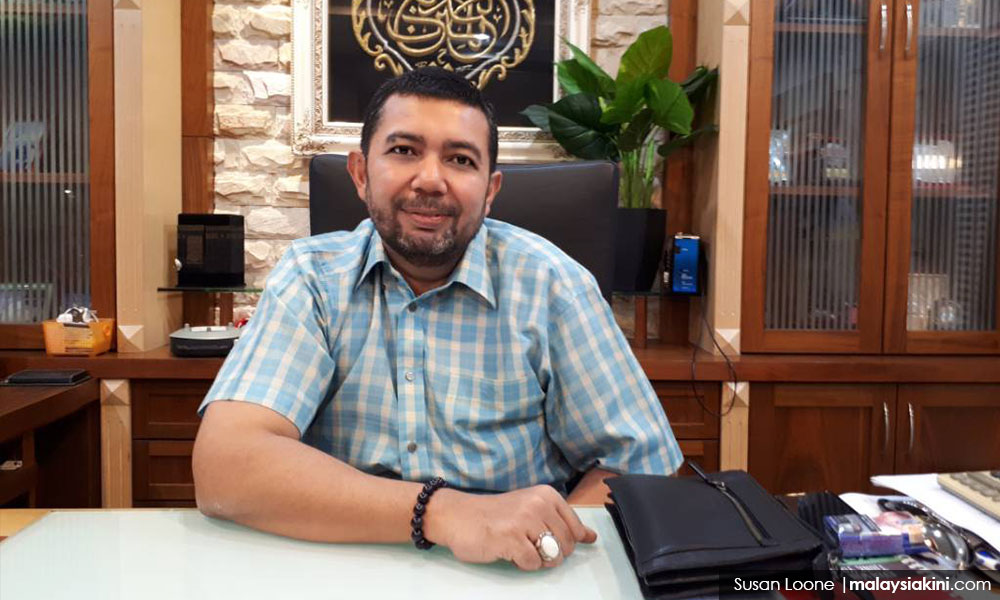April 11, 2019
The New Science of How to Argue—Constructively

In the early days of the internet, way back in the 1990s, tech utopians envisioned a glittering digital future in which people from very different backgrounds could come together online and, if not reach consensus, at least learn something from one another. In the actual future we inhabit, things didn’t work out this way. The internet, especially social media, looks less like a dinner party and more like a riot. People talk past one another, and the discussion spirals down accordingly.
Some of this has to do with, well, people from very different backgrounds coming together online. A common trigger is when specialized terms once restricted to certain corners of academia—think neoliberal or intersectional—leak out into the broader public discourse without everyone agreeing on their precise definitions. If an academic uses the term white privilege on Twitter in an exchange with a nonacademic, for example, some level of animosity might arise simply through a lack of shared understanding over what the term does mean—that white people, on average, enjoy certain benefits relative to other Americans—and what it does not: that all white people are “privileged” in some absolute sense. If you Google no such thing as white privilege, you’ll see a lot of people responding not to what the term actually means, but to a misunderstanding of it. To take one of countless examples, the conservative commentator Brigitte Gabriel once racked up 5,000 retweets by tweeting “I’m an Arab Lebanese born American immigrant with 3 best selling books and a national organization that I founded. There is no such thing as ‘White Privilege.’” She was met, of course, with plenty of repliers who explained angrily that she was misinterpreting the term.
To the Swedish blogger John Nerst, online flame wars like those reveal a fundamental shift in how people debate public issues. Nerst and a nascent movement of other commentators online believe that the dynamics of today’s debates—especially the misunderstandings and bad-faith arguments that lead to the online flame wars—deserve to be studied on their own terms. “More and less sophisticated arguments and argumenters are mixed and with plenty of idea exchange between them,” Nerst explained in an email. “Add anonymity, and knowing people’s intentions becomes harder, knowing what they mean becomes harder.” Treating other people’s views with charity becomes harder, too, he said.
Read: Teens are debating the news on Instagram
Inspired a few years ago by this rapid disruption to the way disagreement usually works, Nerst, who describes himself as a “thirty-something sociotechnical systems engineer with math, philosophy, history, computer science, economics, law, psychology, geography and social science under a shapeless academic belt,” first laid out what he calls “erisology,” or the study of disagreement itself. Here’s how he defines it:
Erisology is the study of disagreement, specifically the study of unsuccessful disagreement. An unsuccessful disagreement is an exchange where people are no closer in understanding at the end than they were at the beginning, meaning the exchange has been mostly about talking past each other and/or hurling insults. A really unsuccessful one is where people actually push each other apart, and this seems disturbingly common.
The word erisology comes from Eris, the Greek goddess of discord, who proved in antiquity that you could get people into fights by giving them ambiguous messages and letting them interpret them self-servingly and according to their own biases.
As the lore around Eris shows—she who touched off the Trojan War—arguments are hardly a recent development. Neither is the study of argumentation itself. Yet when the ancient Greeks devoted thousands of pages’ worth of text to understanding rhetoric and dialectic—persuasion and logic, to oversimplify a bit—disagreement was a rule-bound endeavor. To persuade someone, you should follow certain rules, both with regard to how your argument is structured and phrased, or you should appeal to this sort of emotion. The goal of all this effort was to make more effective writers or orators, and to gain higher insight through controlled disagreement.
In the intervening millennia, countless young people—in most societies, the wealthy, educated ones—have been instructed in these arts. Then, they write arguments meant to be read by their ideological adversaries, like opinion columns, or engage in speaking events, like debate competitions, meant to be heard and rebutted by them. The system works because, in theory at least, everyone agrees with certain rules, handed down over the years in musty classrooms, about what constitutes an effective argument or a broken one. Even when there isn’t much convincing going on, everyone is more or less playing the same game.
The welcome rise of near-universal literacy and democratic values more generally, as well as the partial dissolution of an entrenched aristocratic class, has put some cracks in this system, and the rise of the internet has blown it up entirely. This has, on balance, been a good thing: More people than ever before have a platform from which to advocate for their positions. But the shift has also brought complications. Just as a space race inevitably yields advances in aeronautics, the online-argument boom promises to keep aspiring erisologists very busy.
Nerst hopes that scholars can learn more about how the divergence in people’s fundamental beliefs and assumptions makes them react to the world in different ways. Better understanding of this, he said, would “make us more humble when facing the task of interacting with other minds in a non-straightforward way.” It could also offer insights about how very specific triggers can cause a disagreement to become out of control. Nerst said that he would “like to know more about how the process of interpreting ambiguous yet loaded-sounding phrases works in the mind.”
As if to subvert the hyperkinetic, screamy, rage-tweet-a-minute culture of today’s online discourse, Nerst rolls out his views on erisology in the form of long, carefully constructed blog posts, borrowing liberally from and building on the ideas of other people.
The concept of decoupling is erisology at its best. Expanding on the writing of the mathematician and blogger Sarah Constantin, who was herself drawing on the work of the psychologist Keith Stanovich, Nerst describes decoupling as simply the idea of removing extraneous context from a given claim and debating that claim on its own, rather than the fog of associations, ideologies, and potentials swirling around it.
When I first heard of decoupling, I immediately thought about the nervous way in which liberals discuss intelligence research. There is overwhelming evidence that intelligence, as social scientists define and measure it, has a strong hereditary component; according to some estimates, genetic factors account for about half the variation in intelligence among individuals. None of that has anything to do with race, because races do not map neatly onto genetic difference. But because the link between intelligence and genetics is so steeped in oppression and ugly history—that is, because charlatans have so eagerly cited nonsense “research” purporting to demonstrate Europeans’ natural superiority—discussions even of well-founded studies about intelligence often end in acrimony over their potential misuse.
Once you know a term like decoupling, you can identify instances in which a disagreement isn’t really about X anymore, but about Y and Z. When some readers first raised doubts about a now-discredited Rolling Stone story describing a horrific gang rape at the University of Virginia, they noted inconsistencies in the narrative. Others insisted that such commentary fit into destructive tropes about women fabricating rape claims, and therefore should be rejected on its face. The two sides weren’t really talking; one was debating whether the story was a hoax, while the other was responding to the broader issue of whether rape allegations are taken seriously. Likewise, when scientists bring forth solid evidence that sexual orientation is innate, or close to it, conservatives have lashed out against findings that would “normalize” homosexuality. But the dispute over which sexual acts, if any, society should discourage is totally separate from the question of whether sexual orientation is, in fact, inborn. Because of a failure to decouple, people respond indignantly to factual claims when they’re actually upset about how those claims might be interpreted.
Read: In defense of civility on Twitter
Nerst believes that the world can be divided roughly into “high decouplers,” for whom decoupling comes easy, and “low decouplers,” for whom it does not. This is the sort of area where erisology could produce empirical insights: What characterizes people’s ability to decouple? Nerst believes that hard-science types are better at it, on average, while artistic types are worse. After all, part of being an artist is seeing connections where other people don’t—so maybe it’s harder for them to not see connections in some cases. Nerst might be wrong. Either way, it’s the sort of claim that could be fairly easily tested if the discipline caught on.
Another potential avenue for erisology is to produce interventions to promote more healthy ways of arguing. “If it would become a proper field, it would be interesting to see whether training people to identify common pitfalls of disagreement would make them argue better and be less responsive to bad argumentation,” Nerst explained. Again, only experimental studies can answer the question.
Nerst is nothing if not prolific, and at first glance this field can appear a bit sprawling and impregnable. Nerst explains in “What is Erisology?” that, “off the top of [his] head,” he thinks the new field should draw on the insights of more than a dozen disciplines ranging from traditional philosophy, to anthropology, to post-structuralist theory. And as he explained to me, the details thus far “are portioned out among 70 blog posts and 170,000 words.” That’s almost two books’ worth of theorizing. But once you learn about erisology, you see its potential applications everywhere.
When I ran the concept of erisology by a couple of political scientists who study disagreement, I got some unexpected pushback. Though Nerst has claimed that “no one needs to be convinced” of the needlessly adversarial quality of online discourse, the Syracuse University political scientist Emily Thorson isn’t buying it. “I actually do need to be convinced about this,” she said in an email, “or at least about the larger implication that ‘uncivil online discourse’ is a problem so critical that we need to invent a new discipline to solve it. I’d argue that much of the dysfunction we see in online interactions is just a symptom of much larger and older social problems, including but not limited to racism and misogyny. Our time would be better spent addressing those issues.”
Thorson argued that disagreements on Twitter or comment threads do not usually entail people “trying to understand each other but failing due to ‘pitfalls.’ Rather, their goal is to affirm their identity, and often that involves aggressively demeaning someone who has a different identity from them. And so these conversations aren’t ‘dysfunctional’; they’re functioning exactly how the participants intend them to—as defenses of their identity, not as deliberative forums.”
Samara Klar, an associate political-science professor at the University of Arizona and the co-author of Independent Politics: How American Disdain for Parties Leads to Political Inaction, points out that for all the talk of online hostility, in the real world, there’s a lot less evidence that people with political disagreements are at one another’s throats as frequently as a blood-splattered Twitter feed might indicate. If anything, there’s some evidence of the opposite—a growing number of Americans are sick of politically overheated disagreement and are retreating from it. Klar cites research that shows that people think they’ll dislike engaging in political debate with those across the aisle from them, but that when they actually do (in a real-world experimental setting), they often end up enjoying the experience. “The truth is, a growing percentage of Americans are more angry about politics in general than they are toward members of the other party specifically.”
Still … I’m on Team Erisology, especially if political fatigue is what’s grinding Americans down. Even before I spoke with the political scientists, Nerst contended that a better understanding of today’s online argumentation would help people cope with its excesses. “Most people really are tired of shouting matches and want more nuance (according to surveys etc.),” he wrote to me, “and I hope we will develop some cultural immunity towards ragebait and hyperzealotry soon. They are quite recent phenomena at this potency, and I’m cautiously optimistic. If and when we get to that future, we might appreciate having tools on hand to make sense of what’s happened and how to get away from it.”
We want to hear what you think about this article. Submit a letter to the editor or write to letters@theatlantic.com.





